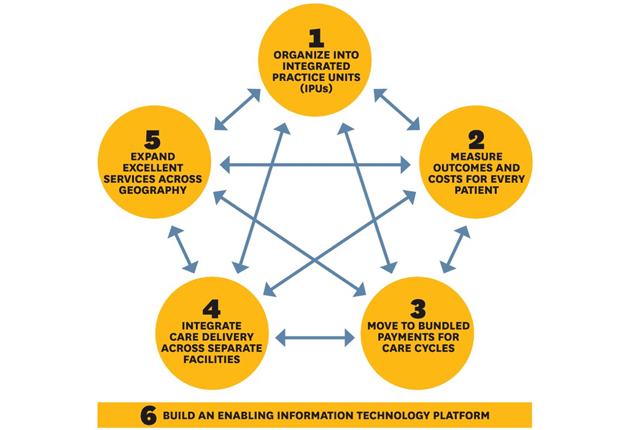Overcoming Barriers: Financing and Service Delivery for Vaccination in Fragile and Conflict-Affected States


Recently the Saw Swee Hock School of Public Health (SSHSPH) at the National University of Singapore (NUS) held the Leadership Development Programme (LDP) with primary focus on advancing universal health coverage (UHC) through the use of HTA. And Prof Kishore Mahbubani, who is the Senior Advisor (University & Global Relations) and Professor in the Practice of Public Policy at the National University of Singapore, opened the programme by saying, “we are living in different cabins of the same boat”, where the cabins represent the countries and, the boat represents the world. With this analogy he highlighted the interconnectedness of the world we live in today and the importance of working together in steering the goals of UHC, if we as a civilisation are to progress.
During a site visit to the National University Hospital, this analogy took a new form. A hospital can also be seen a boat, with the different hospital units as the cabins. Now, if these cabins do not talk to each other, there is no way to find out who is doing well and who needs help. And this may eventually lead to leaks and wear down (i.e. the inefficiencies), and ultimately, the boat may sink. In hospitals, if a doctor or a department is performing badly, it directly affects the performance of the rest because resources will have to be remobilised, which is a waste, and results in higher opportunity cost. And such problems are rectifiable via effective communication!
Most country representatives present at the LDP seemed to buy into this analogy of cabins and boat and had a vigorous desire to advance UHC. So, the problem does not lie in intent, but in the know-how, i.e. how to make these cabins talk to one another?
The National University Health System (NUHS) have started an initiative called Value Driven Outcomes (VDO) which aims to deliver value-based care by identifying best practices and incorporating them as standardised processes. To achieve this, NUHS developed an effective informatics solution to collect, aggregate, and analyse patient clinical data and institutional cost data per episode of care. Quality is derived using an all-or-none methodology, reviewing clinical indicators divided under four groupings; a) Clinical Quality and Safety, b) Appropriateness of Care, c) Patient Reported Outcome Measures and d) Patient Experience. These indicators are collected and analysed on a continuous basis, providing almost real-time information.

When quality standards are not met, the cause is identified and addressed, for e.g. from the data, they can tell which doctors are providing the best care for patients and how others can take lessons.
As a result, in the case of total knee replacements, NUH was able to reduce the number of patients who needed blood transfusions from 26 percent of cases to 3 percent. This meant that there was an improvement in health outcomes and savings of $955 per case [Source: NUH and The Straits Times, 31 May 2017].
They are now working to implement VDOs within and across all NUHS institutions. In essence, they are bridging this communication gap by enabling their cabins to talk to each other and rectify any issues that arise so their boat sails smoothly.
Initiatives like VDO can deliver effective and sustainable UHC through two mechanisms. (1) Using data to deliver best care practices included in the current UHC package while being cost efficient, and, (2) it can feed reliable and relevant real-world data (RWD) for health technology assessment (HTA) to amend the existing UHC package.
Therefore, such initiative should be incorporated into the armoury of HTA in advancing UHC and be a priority for all countries striving for equity and efficiency gains in health, if the boat is to sail smoothly.